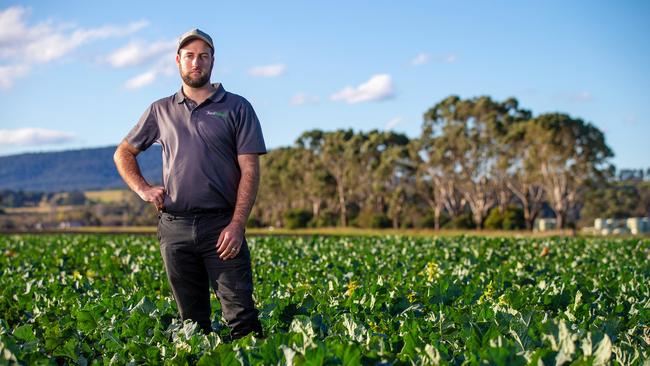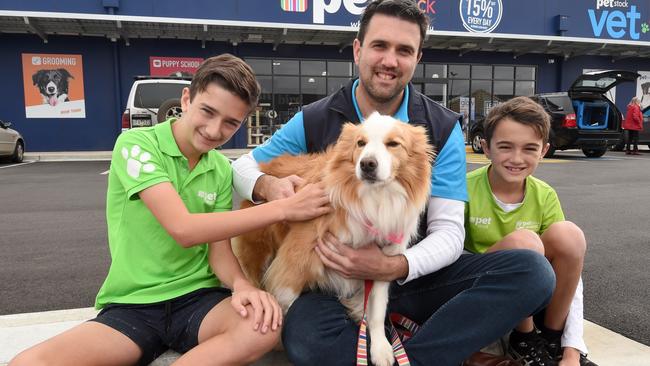Regional Victoria ready to lead economic recovery
Farmers have pleaded with Victorians who lost their jobs during the coronavirus crisis to look to regional areas for work as the industry suffers a skills shortage. It comes regional Victoria signalled it was ready to kickstart the state’s economic recovery.
VIC News
Don't miss out on the headlines from VIC News. Followed categories will be added to My News.
Victorian farmers are urging people out of work to consider moving into the state’s thriving agricultural sector.
The say there are jobs and skills shortages in their sector, presenting opportunities during the coronavirus recovery.
The Victorian Farmers Federation wants rural jobs to have the same status as fly-in fly-out work in the mines.
The call comes as rural and regional Victoria signalled it was ready to kickstart the state’s economic recovery, driven by the agriculture, tourism and hospitality sectors.
The push for the fightback, with the state of emergency ending next Sunday, comes as:
VICTORIAN farmers called for a tourism-style marketing campaign to champion to state’s quality produce;
EMBATTLED tourism operators repeated their calls for a road map out of the lockdown and were buoyed by the move to allow some overnight travel from June 1;
RURAL communities urged support for their local councils — often a major employer in smaller centres;
EDUCATION providers such as regional TAFEs, vital to jobs and training, hoped to start reopening soon; and
THE federal and state governments last week rolled out more infrastructure projects to sustain local communities.

VFF president David Jochinke said the agriculture industry could accommodate demand for work, and had a skills shortage.
“There is a career or job pathway whether your interest lies in business, technology, engineering or the environment,” he said. “Fly-in, fly-out workers travel to some of the most remote locations in Australia to work in the mines without batting an eyelid. It’s hard work but is considered to be prestigious and financially rewarding: why is that different to a farming career?’’
Victoria was Australia’s largest food and fibre producer as well as its largest exporter.
Fourth-generation farmer Kane Busch, from Hillside, near Bairnsdale, said the industry could be much stronger with investment and support.
“We’re getting more and more people involved in the tech side of things. Ag tech is a big mover,’’ he said.
The State Government has already rolled out its $50 million Agriculture Workforce Plan and the $715,000 Dairy Farm Induction Program to support job matching to fill labour gaps.
Victorian Chamber of Commerce and Industry chief Paul Guerra feared some failing businesses would leave debt in regional towns, which would stifle any recovery.
But many businesses were keen to fully restart given relatively low infection rates.
“People in regional Victoria have managed to adhere to regulations that were probably more applicable to greater metro Melbourne,’’ Mr Guerra said.
REGIONAL VICTORIA ALL READY TO GO
Regional Victoria is more ready than Melbourne to lead the state’s economic recovery, Victorian Chamber of Commerce and Industry chief Paul Guerra said.
He said regional areas have low infection rates and do not have public transport and congestion concerns.
Mr Guerra said regional businesses were ready to go when pandemic restrictions were further eased.
“There’s an opportunity to give regional Victoria a headstart. Why wouldn’t we do that?” Mr Guerra said.
Businesses which have managed to stay open have received strong community backing.
Ballarat-based Petstock has stayed trading as many people who were at home spent time and money on their animals.
“People have been spending more on their pets than every before,’’ Petstock managing director David Young said.

The company was considered an essential service when strict lockdown measures were introduced two months ago.
“My theory was that we are feeding mouths as well — whether it’s a guinea pig in your backyard or an expensive racehorse,’’ Mr Young said.
The family business now has 150 stores and employs 2000 people nationwide.
“Our stores are more like a community, we know a lot of our customers by their first name,” Mr Young said.
“And the customers have been great during this time and our staff have been amazing.’’
The company has enjoyed “solid” trading over recent months, but its New Zealand stores had to close their doors, meaning a switch to online trading.
Mr Young said the low infection numbers gave the business community hope of a swift recovery.
“If you were lucky enough to keep your job, you’ve stayed at home, not gone on holiday, not gone to the pub for a meal, so you’re in good shape for the future,” he said.
Mr Guerra welcomed yesterday’s decision by the state government to allow people to travel and stay overnight from June 1, saying it would help accommodation, hospitality and tourism operators.

